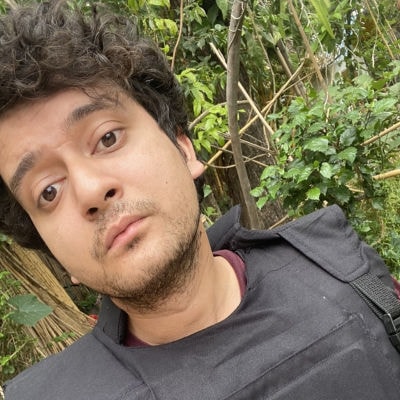Opinion World’s silence on Sudan shows empathy is racialised
The uncomfortable truth is that the established civilisational hierarchy ensures that conflicts in sub-Saharan Africa, even when they consist of the world's worst humanitarian disasters, rarely trigger the urgency or political mobilisation seen elsewhere
 South Sudan has faced repeated bouts of violent conflict since its independence from the Republic of Sudan in 2011. (Photo: Reuters)
South Sudan has faced repeated bouts of violent conflict since its independence from the Republic of Sudan in 2011. (Photo: Reuters) No campus protests, solidarity marches, brand boycotts, media outrage, or social media activism. The world has remained conspicuously silent about the killing fields of Sudan, where the scale of violence is now so vast that satellite images reportedly show evidence of mass burials. Last week, the Rapid Support Forces (RSF) — the paramilitary group funded and armed by the UAE that is battling Sudan’s army — captured the city of El Fasher. Soon after, reports of ethnically motivated massacres, sexual violence, and other atrocities began to emerge. And yet, there seems to be little space for Sudan in global political discourse, as there was, for example, for Gaza.
This is not an attempt to make a column-wise comparison between the tragedies in Sudan and Gaza, or to ask, “Why are you silent about the other?” To do so would serve neither, and would reduce the horror of mass killings to a mere academic exercise. The point is to understand what strategies succeed in mobilising millions across the world to demand accountability from their governments. The conflict in Sudan may not have endured this long without the involvement of regional powers backing their respective proxies, particularly the UAE, which has enriched itself through gold imports in exchange for providing weapons to the RSF. Why is the world, then, not rallying to put pressure on Abu Dhabi — in diplomacy, tourism, commerce, or even sport?
Take Manchester City, one of the richest football clubs in the world. It is no secret that the primary financial interest of the Abu Dhabi United Group, owned by the UAE’s Vice President, Mansour bin Zayed Al Nahyan, lies in its ownership of Manchester City and the revenue generated by the club’s spectacular success over the years. Yet barring one or two demonstrations, why are football fans, at least in the UK, not outraged that the club is bankrolled by the same network profiting from mass killings in Sudan?
The answer is complex, but the uncomfortable truth is that global empathy is racialised. The established civilisational hierarchy ensures that conflicts in sub-Saharan Africa, even when they consist of the world’s worst humanitarian disasters, rarely trigger the urgency or political mobilisation seen elsewhere. That Africa is plagued by war, poverty, and disease — and that “these things keep happening” — does not make its people less worthy of attention. If Sudan fails to capture the world’s political imagination, the roots of this selective outrage must be confronted.
The objective of any comparison is not to criticise those who speak up for Palestine but to understand how mobilisation, through social media, diaspora networks, and growing awareness was made possible and sustained, and how it can be replicated for Sudan. More than 2,00,000 people were killed in the 2003 Darfur genocide. Two decades on, history is repeating itself.
The writer is deputy copy editor, The Indian Express
saptarishi.basak@expressindia.com






